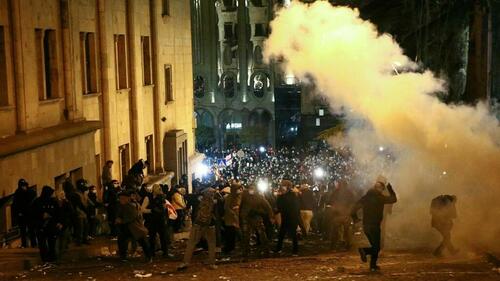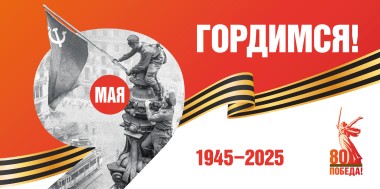Five years ago, on the night of August 8, 2008, the Georgian government committed a fatal strategic mistake. Overestimating the political support of the United States and having underestimated the moral obligations assumed by Russia, Tbilisi launched a war of aggression against South Ossetia, resulted in the predictable defeat of the Georgian military machine and the final loss of the two former Georgian autonomies.
After the Russian recognition, followed on August 26, South Ossetia and Abkhazia will never return to the Georgian state. However, these are not the all intermediate results of the "August war."
Russia's entry into the war on the side of South Ossetia has radically changed the balance of power in the Caucasus, prevented the disintegration of the country, has shown clearly that there is not only a shot in the locker, but also the political will, and that in these circumstances this is much more important.
If the official Moscow had remained indifferent to the tragedy of the Ossetians, the separation of the Caucasus from the North Caucasus Federal District, most likely, would have been a fait accompli. And not only the Caucasus - a demonstrative disregarding the lives of its citizens (the vast majority of South Ossetia have Russian citizenship), inevitably would have also given rise to separatist-depressive moods in quite a "Russian" territories and regions. Emergency military aid by Russia prevented Moldova and Azerbaijan, initially inspired with the Georgian example, from taking hasty steps.
There is no doubt that Moscow's decision was dictated not only by the political and pragmatic, but also by religious and moral considerations. The Russian leadership had no other way out. Saakashvili did not leave the Kremlin alternatives. Russia had to intervene, and it intervened.
"August war" clearly than ever, highlighted the complete lack of objectivity (in conjunction with an enviable consolidation) of the Western press, which for so long had been holding up as an example to the "biased" Russian. As soon as it came down to it, it turned out that foreign journalists - were, of course, exceptions, - were not interested in the actual situation and were ready for falsification and juggling with facts, if only to carry out their task of propaganda. Instead of the true picture of the events, or at least a timid attempt to draw it, the majority of the European and especially the American media did not hesitate to serve the interests of their customers. The order was simple: to blame the bloody imperial Russia, cowardly attacked a defenseless Georgia.
It would seem that if we live in the twenty-first century, the Internet and mobile phones make it impossible massive fraud. But the modern means - do not guarantee that the "civilized world" at least will hear truthful version of the events, if it does not fit into the geopolitical mainstream. That is why the conversations as if Russia "lost the information war" not exactly in favor of the poor - but do not enough reflect the reality, in the present circumstances it is impossible to win this war. Hence, the main effort should be, as before, concentrated on the battlefield, ceasing to invest heavily in helpless agitation like "Olympus Inferno" or "August. The eighth."
Georgian mass media, as well as the public opinion and political circles have been still happily spreading out the lie about the "Russian attack on Georgia", showing a complete lack of reflection, and, consequently, the possibility of repentance and the subsequent change of foreign policy in a more constructive (and, importantly, realistic ) key. As remarked ironically by the known political analyst Vladimir Goryunov, if the Russian government for political reasons had not brought to its logical end - taking Tbilisi and Russian Governor-General in the Vorontsov Palace - the "operation to force Georgia to peace", now it is worth to focus on enforcement measures to repent. Otherwise, Georgia sooner or later will retry forcible seizure of the territories, to which it has no moral right.
Unfortunately, the events of the past nine months, having unfolded in the Russian information field after the victory of the opposition coalition "Georgian Dream" in the parliamentary elections, show that in the minds of a large part of the Moscow near-political public continue to prevail, to say the least, naive and romantic conceptions about Georgia. Though for the nine months one can bear a baby, let alone to change the wrong policy, no one saw a significant change in the position of the Georgian side (with the exception of a small group of honest people, unfortunately, without having any political and media influence).
It is extremely doubtful that the Georgian society will be able to overcome its chauvinistic stereotypes concerning Abkhazians and Ossetians, as well as the utopian views of its own place in the Caucasus and in the world as a whole. Russia simply must help the fraternal Orthodox people, but this is still the wishful thinking. And if there are no specific claims to Tbilisi, in general, the Georgian lobby in Moscow should be eliminated both organizationally and financially, and this matter is urgent.
Turning to the missed opportunities (the first and most important of them - a rejection of the capture of Tbilisi and overthrow Saakashvili represents a clear danger to the entire region), it should be noted that, having rendered military assistance to South Ossetia and then recognizing the two new republics, Moscow practically threw Tskhinval to the mercy of fate. Despite the massive financial injections, sufficient to turn the RSO not only into a "garden city", but a showcase of Russia`s achievements in the Caucasus, this has not happened. On the other hand, it is not over yet, and most of the problems of postwar reconstruction can be resolved before the new year - if there is the same political will.
As for the powder, the war showed the unreadiness of the Russian army, even for such short - five day - fighting. The troops lacked for even maps and technology, as well as medicine and the understanding of combat missions. The "August war", like many others before, was won by the fortitude and resilience of the Russian soldiers and officers. Learned this lesson will show the future wars.
The fruits of August 2008 were reaped not by those who won the war. However, South Ossetia was saved, and the world - for a little while and catch - saw a real, heavenly Russia, and this bright page of the modern history will forever remain in the memory of our distant descendants.
Yana Amelina, Head of the Caucasus Research
Russian Institute of Strategic Studies






